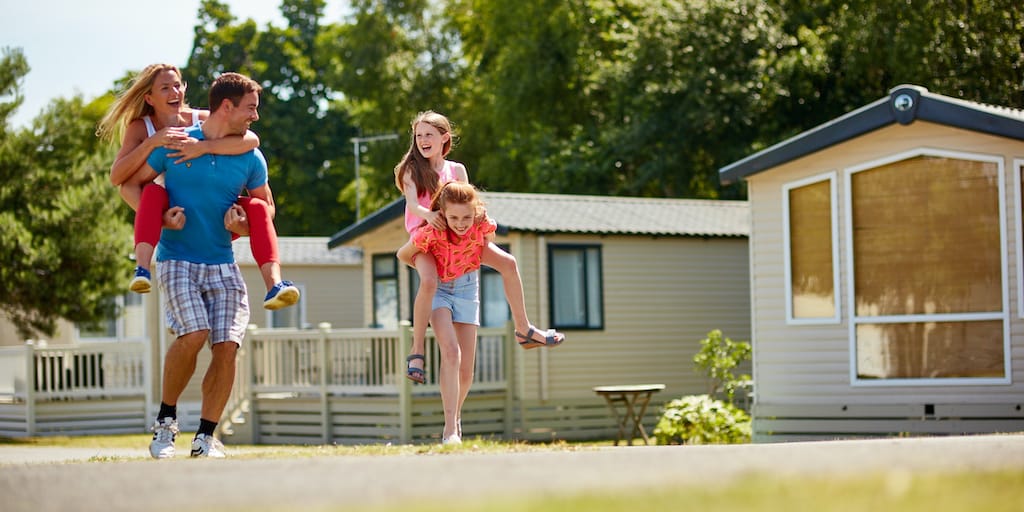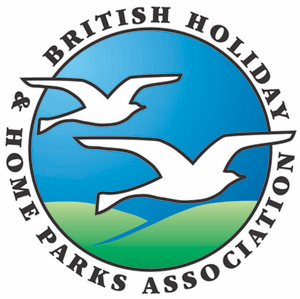Parkdean is really buzzing say green award judges

Parkdean is celebrating a string of award wins from the David Bellamy Conservation Award Scheme (DBCAS) for helping wildlife, saving resources, and being honey bee friendly.
Of the group’s 24 holiday parks, 18 won gold awards, six won silver, seven were given the new honey bee friendly status, and two won special distinctions for their unique, innovative projects.
One of the gold award winners, Wemyss Bay in Scotland, was celebrating its fifteenth consecutive year of being given this accolade.
Special distinction awards went to Ruda Holiday Park in Devon and Sundrum Castle Holiday Park in Scotland, both of which completed projects highlighting new thinking and inspiring others to protect Britain’s natural environment.
Led by Parkdean’s beach ranger Rose Roberts, Ruda Holiday Park turned its sand dunes, ponds and meadows into classrooms last summer, inviting local primary schools and guests on guided walks, rock pool rambles, beach cleans and bug hunts, participants also enjoyed building bee, bug and reptile hotels.
North of the border at Sundrum Castle Holiday Park, Parkdean employees built a kitchen garden and nursery which they’ve been using for three years and created a greenhouse out of 2,000 plastic bottles collected from customers.
The new plastic greenhouse not only recycles bottles but also saves the park money when they bring plants on from seed at different times of year. The beautiful flowers and plants grown are then used in hanging baskets and beds around the holiday park.
David Bellamy said: “These parks really are role models for green tourism with their amazing range of conservation initiatives which burst with flair and imagination!
“I know that their guests, and especially youngsters, are going to love becoming involved with the many hands-on opportunities they’ve created to discover and explore the natural world.
“Parkdean has shown time after time that business and conservation can be perfect partners to help protect our natural environment, and to add an exciting new dimension to family holidays.”
The new honey bee friendly category DBCA’s introduced in 2015, in association with the British Beekeepers Association, aims to help combat the dramatic decline of the British bee species by recognising organisations who create honey bee havens where bees can access pesticide-free food, shelter and water.
Over one million honey bee hives existed in the UK a century ago but today there are fewer than 300,000 as the population of British honey bees continues to decrease due to the UK’s changing weather, chemicals used in farming and increased land use.
Looe Bay Holiday Park in Cornwall is one of Parkdean’s honey bee friendly parks. The coastal park has increased the volume of wild plants on-park and has more planting planned.
The park’s Sid and Lizzie garden, named after Parkdean’s mascots, is now home to a bee hotel, adding to the garden’s existing collection of homes for animals including a hedgehog house and bug hotel. The holiday park also welcomes nesting bats and woodpeckers.
Families can learn about the importance of bees in Looe Bay’s entertainment programme during guided nature walks and some home-grown produce is used in the park’s kitchen. Holidaymakers are also encouraged to pick herbs from the on park herb garden to use in their own cooking.
Paul Higgins, Parkdean Holidays general manager at Looe Bay Holiday Park said: “We’ve worked hard to make Looe Bay a welcoming and sustainable environment for bees to have access to vital food supplies needed for their survival as well as giving them a place to call home through the addition of our very first bee hotel
“We’re really pleased the David Bellamy Conservation Awards are recognising the importance of this work and we hope to keep adding to the array of plants and wildlife we have on park which we feel adds something extra to the holidays of our visitors.”
For more information, see www.parkdeanholidays.co.uk


